
Wizmaker L1 12W, 24W, 36W Comparison
Laser engraver power Output has a significant impact on engraving and cutting performance, primarily in the following aspects:
1, Material Thickness for Cutting in One Pass:
Higher laser power allows for cutting thicker materials. The one-pass cutting thickness for different power levels of the WIZMAKER L1 is as follows:
12W laser: 10mm Basswood Plywood and 5mm Black Acrylic in One-PASS
24W laser: 12mm wood, 8mm Black Acrylic Cutting in One-PASS
36W laser: 18mm Paulownia Wood, 12mm Black Acrylic in One-PASS
2, Cutting and Engraver Accuracy:
Laser cutting and engraving accuracy depends on the size of the laser spot. A finer spot size results in higher precision for engraving and cutting. Generally, as power increases, the spot size may slightly increase. For Wizmaker L1, the spot size for 12W and 24W lasers is 0.06 *0.06mm, while the 36W laser has a spot size of 0.06*0.08mm. Among other brands with similar output power on the market, Wizmaker L1 offers a fine laser spot, enabling better performance for engraving and cutting complex and intricate patterns
3, Cutting and Engraving Speed:
The maximum speed of a laser engraving machine is primarily determined by the machine's motherboard algorithm and structure. Typically, the maximum speed specified in machine parameters is theoretical. In practical applications, the speed should be selected based on the material and intended use. Diode laser engraving and cutting work by absorbing laser energy, raising the temperature to remove material or mark the surface of various materials achieve cutting and engraving. To achieve a higher laser power allows for faster speeds, making better use of the machine's theoretical speed.
The relationship between the total material removal and laser output power and machine operating speed can be briefly expressed using the following formula:
Total Material Removal = α*Laser Output Power /Machine Operating Speed
In this formula:
"Total Material Removal" represents the amount of material removed during the laser engraving or cutting process.
"Laser Output Power" refers to the power of the laser used for the process.
"Machine Operating Speed" denotes the speed at which the laser engraving or cutting machine is operating.
This formula indicates that the total material removal is directly proportional to both the laser output power and the machine's operating speed. When the total material removal is the same , if you want to use the higher speed, you need to have the higher laser output.
We make testing to demonstrate the impact of laser power on processing speed more clearly, tests were conducted on WIZMAKER 12W and 36W lasers. You can refer to the blog.
Above are the main differences between the Wizmaker L1 12W, 24W, 36W. Of course, there are other differences for your convenience of comparison, you can refer to below table.
|
Wizmaker L1 12W |
Wizmaker L1 24W |
Wizmaker L1 36W |
|
|
Working Area |
400mm*400mm |
400mm*400mm |
400mm*400mm |
|
Laser Output |
12W |
24W |
36W |
|
Laser Spot |
0.06mm*0.06mm |
0.06mm*0.06mm |
0.06mm*0.08mm |
|
Max Speed |
400mm/s |
400mm/s |
400mm/s |
|
Laser lifespan |
20,000hrs |
20,000hrs |
20,000hrs |
|
|
|
|
No comments










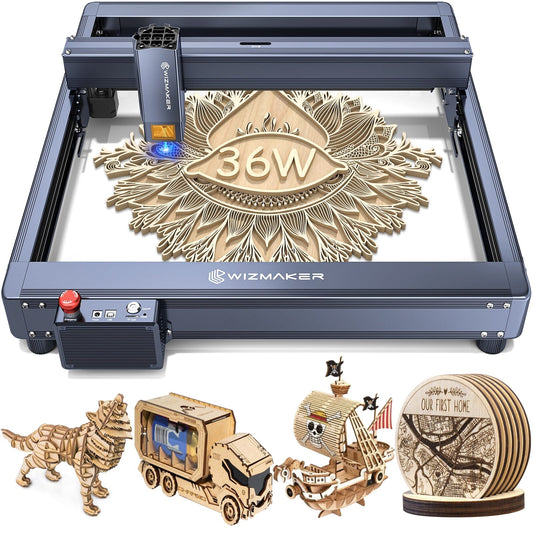
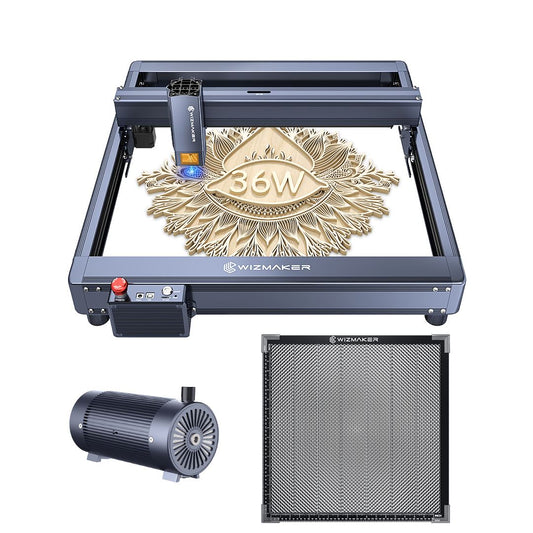
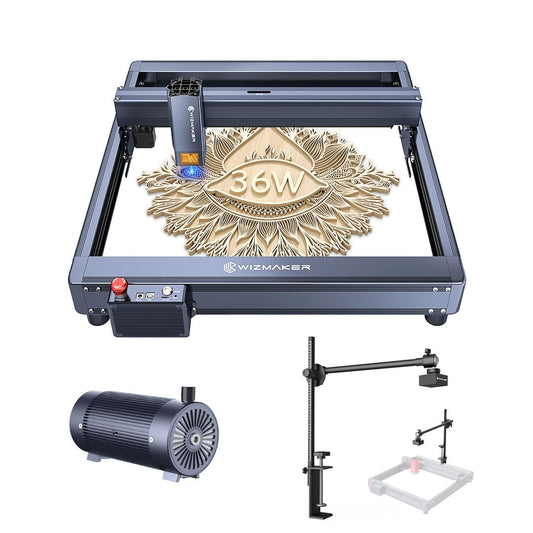
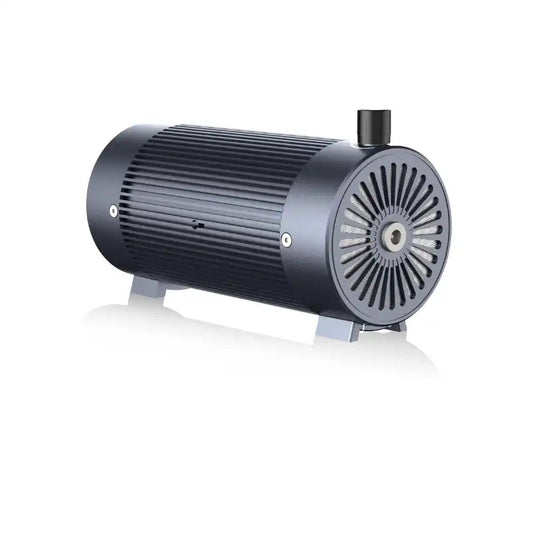
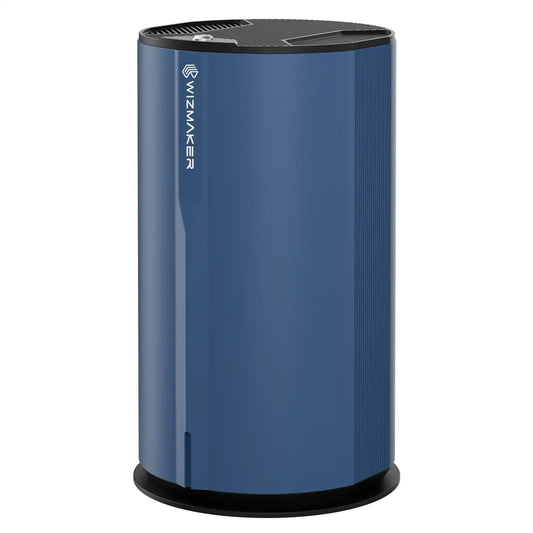


0 comments